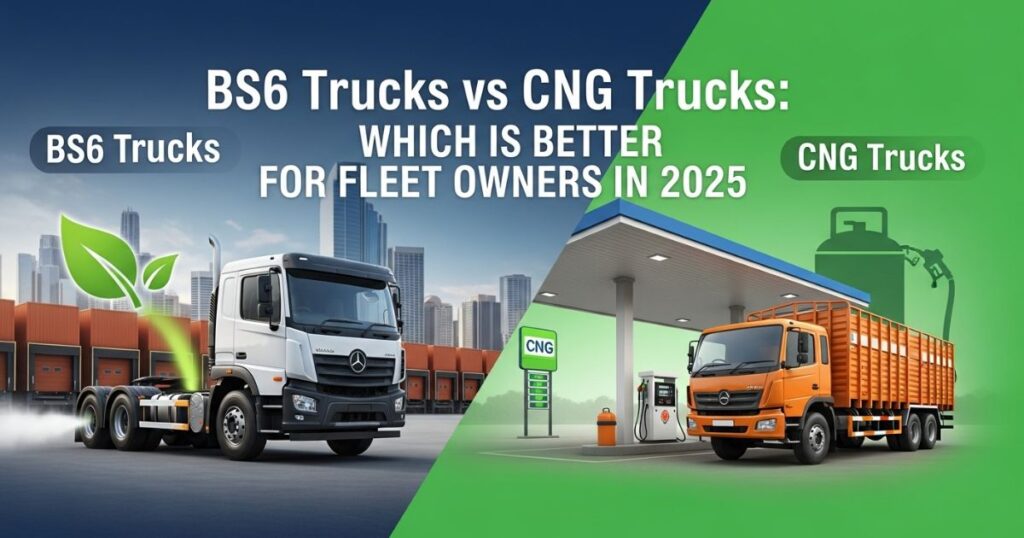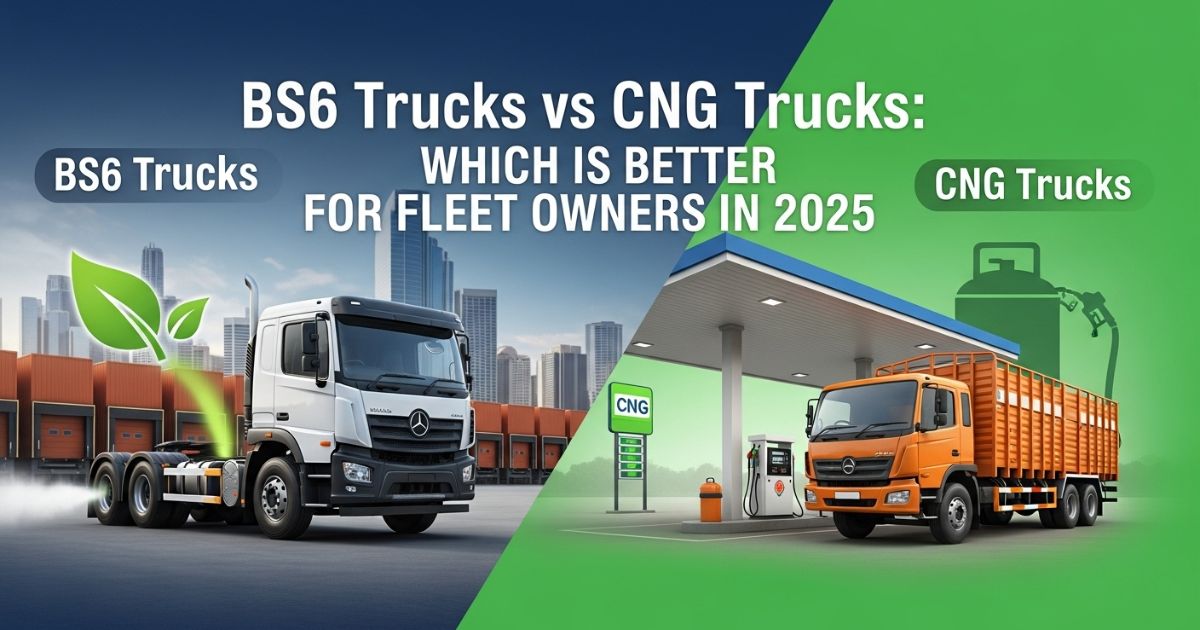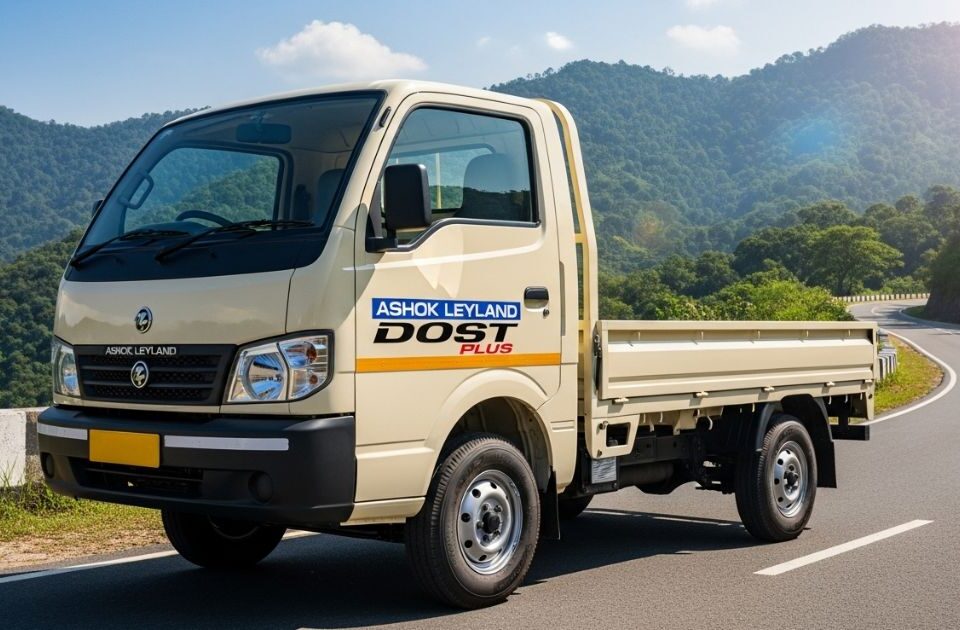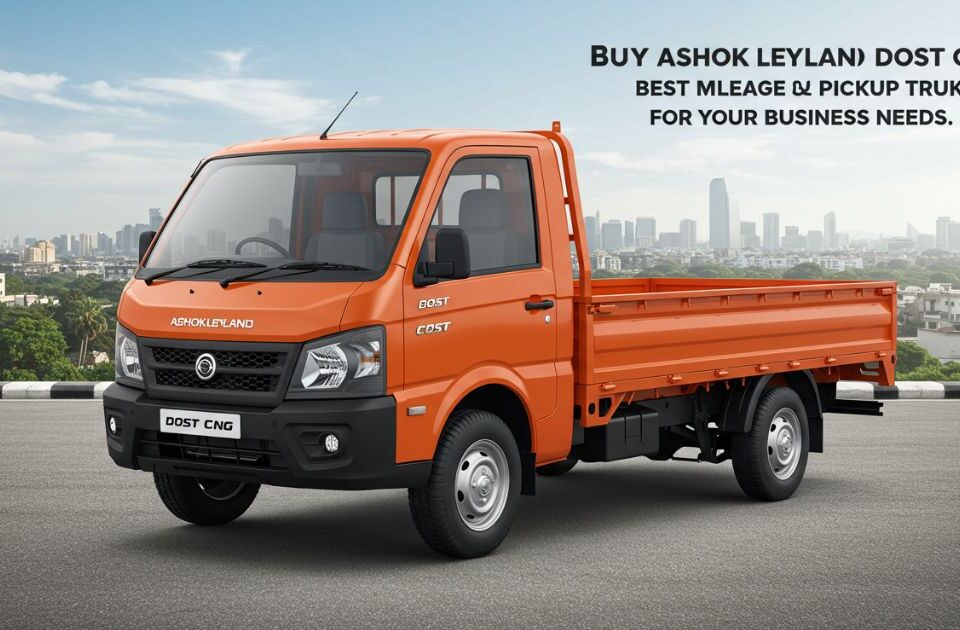
Ashok Leyland Bada Dost i5 Pickup: Detailed Features and Specs
July 24, 2025
Ashok Leyland LCV Models in India: Features, Benefits & Price
August 8, 2025BS6 Trucks vs CNG Trucks: Which Is Better for Fleet Owners in 2025?

India’s commercial vehicle market is undergoing a major shift in 2025. With rising diesel prices, tougher emission regulations, and a growing need for sustainable transport, fleet owners are at a crossroads. Choosing between BS6 trucks and CNG trucks is no longer just about cost, it’s about future-proofing your operations.
The enforcement of BS6 emission norms has raised the bar for pollution control. Meanwhile, compressed natural gas (CNG) trucks are gaining popularity for their cleaner fuel profile and lower operational costs, especially in urban logistics. Whether you’re running a long-haul logistics fleet or operating city-based cargo vehicles, the decision between BS6 and CNG can shape your entire business strategy.
This blog breaks down the comparison between BS6-compliant trucks and CNG commercial vehicles to help you make the right call for your fleet in 2025.
Understanding BS6 Trucks: What You Need to Know
The Bharat Stage 6 (BS6) emission standard is India’s most stringent norm for vehicle emissions. It came into force in April 2020 and requires all new commercial vehicles to comply with advanced pollution control technologies.
What Makes BS6 Trucks Different?
Advanced Engine Tech: BS6 trucks use Selective Catalytic Reduction (SCR) and Diesel Particulate Filters (DPF) to reduce NOx and PM2.5 levels significantly.
Cleaner Diesel: They run on low-sulfur diesel fuel, and require Diesel Exhaust Fluid (DEF) to maintain emission levels.
Performance: Compared to BS4, these clean diesel trucks offer better combustion efficiency, smoother acceleration, and improved torque.
Popular BS6 Commercial Vehicles in India
Some reliable BS6 truck models include:
- Tata LPT 1109 HEx2
- Ashok Leyland Ecomet 1215 HE
- Eicher Pro 2059 XP
- BharatBenz 1415R
These trucks are often used for long-haul routes, heavy-duty cargo, and regional deliveries due to their high torque output and fuel tank capacity.
What Are CNG Trucks? A Quick Overview
CNG trucks operate using compressed natural gas as their primary fuel source. Natural gas burns cleaner than diesel and produces lower CO2, NOx, and particulate emissions, making them an ideal fit for fleets aiming to cut emissions and fuel expenses.
How Do CNG Trucks Work?
CNG is stored in high-pressure tanks and fed to a spark-ignition engine. The combustion process is smoother and quieter compared to diesel engines, and there’s no need for DEF or DPF systems.
Fuel Cost & Availability
In 2025, CNG prices will remain lower than diesel, making it an economical fuel choice, especially for businesses with urban or regional routes. CNG refueling infrastructure in India has improved, particularly in major metros and Tier 1 cities.
Top CNG Truck Models in India (2025)
- Tata 709g LPT CNG
- Mahindra Furio 7 CNG
- Eicher Pro 2059 CNG
- Ashok Leyland Partner CNG
These natural gas-powered trucks are designed for city logistics, cargo transport, and last-mile delivery.
BS6 Trucks vs CNG Trucks: Feature-by-Feature Comparison
| Feature | BS6 Trucks | CNG Trucks |
| Fuel Type | Diesel (with low sulfur) | Compressed Natural Gas |
| Emission Norm | Bharat Stage VI compliant | Lower CO₂ and PM emissions |
| Operating Cost | Moderate to high (diesel cost) | Low (CNG cost advantage) |
| Maintenance | Complex (DPF, SCR, sensors) | Simpler, lower-cost maintenance |
| Refueling Infrastructure | Widespread | Limited to urban and semi-urban |
| Torque/Performance | Higher torque, better for highways | Adequate for city transport |
| Payload Capacity | Slightly higher | May be limited due to CNG tank size |
| Resale Value | Moderate | Improving in metro regions |
Environmental Impact: BS6 vs CNG for Sustainable Fleets
When it comes to emissions, both BS6 and CNG represent a significant improvement over older-generation trucks.
BS6 trucks have drastically reduced NOx and particulate matter, but still emit more CO2 than CNG.
CNG trucks emit almost 25% less CO2 than diesel, making them a greener fuel option.
For fleets aiming to align with India’s low-emission transport goals, CNG offers a cleaner pathway especially in city-based operations.
Both truck types support the move toward sustainable fleet vehicles in India, but CNG holds a slight edge in urban environmental impact.
Operational Cost Analysis for Fleet Owners
Fuel Costs in 2025
- Diesel (BS6 trucks): ₹90–₹100/litre depending on the region
- CNG: ₹70–₹75/kg in metros
In practical terms, cost-per-km is often 20–30% lower for CNG trucks. This adds up significantly for businesses managing multiple daily trips.
Maintenance Costs
BS6 trucks: Require DEF, particulate filter cleaning, and sensor replacements. Downtime due to system faults can impact operations.
CNG trucks: Lower complexity leads to easier, cheaper maintenance. Tank inspection is periodic but less frequent than DEF top-ups in BS6.
Fleet owners looking for cost-effective trucks for business operations should consider CNG if infrastructure supports their routes.
Use Case Suitability: Which Truck Is Better for What?
Long-Haul Transport
BS6 trucks perform better for intercity or highway logistics where torque, fuel tank size, and power are critical.
City Logistics & Delivery Fleets
CNG cargo trucks are ideal for urban logistics, e-commerce delivery, FMCG movement, and last-mile delivery due to low fuel cost and eco-friendliness.
Regional Fleets
Mixed usage depending on access to CNG refueling stations. BS6 might be preferred in less-developed areas.
Challenges with BS6 and CNG Trucks in India (2025)
BS6 Trucks
- DEF supply shortages
- DPF clogging issues in stop-go traffic
- Sensor failures causing breakdowns
- Higher learning curve for drivers and mechanics
CNG Trucks
- Limited refueling station network
- Reduced payload due to heavy CNG tanks
- Longer refueling time
- Not suitable for remote regions
Understanding these trade-offs is essential for fleet planning and vehicle lifecycle cost analysis.
Government Policies, Subsidies & Future Trends
The government continues to support green transport solutions in India, especially through incentives for CNG vehicles.
Subsidies for CNG retrofits
Infrastructure investments in CNG station networks
BS6 enforcement to phase out older diesel trucks
Push towards electric fleets by 2030, but for now, CNG and BS6 remain the practical alternatives
These efforts reflect the broader strategy for fleet upgrade options in 2025.
Expert Recommendation: Which Truck Should Fleet Owners Choose?
There’s no one-size-fits-all. The right choice depends on your fleet’s operational patterns, cost structure, and long-term strategy.
Go with BS6 Trucks if:
- Your routes cover long distances
- CNG stations are unavailable
- You need higher payloads and torque
Choose CNG Trucks if:
- You operate primarily in urban or regional zones
- Fuel cost is a major concern
- You aim to lower your fleet’s carbon footprint
How Movish Helps Fleet Owners Make the Right Choice
At Movish Commercial Vehicles, we don’t just sell trucks, we help businesses build the right fleet for their operations.
- Truck selection consulting based on usage, fuel access, and budget
- Assistance with leasing, loans, and fleet financing
- Reliable after-sales service for both BS6 and CNG trucks
- Access to top brands like Tata, Ashok Leyland, Mahindra & Eicher
- Options for fleet maintenance plans and vehicle health monitoring
Conclusion: Smart Fleet Decisions in 2025
Whether you’re considering clean diesel trucks or eco-friendly CNG trucks, 2025 is about aligning fleet decisions with cost, compliance, and sustainability. Both options bring unique strengths to the table. Use your fleet’s route patterns, fuel access, and business goals as your guide.
Movish helps businesses stay ahead by offering insights, vehicles, and services tailored to modern commercial transport needs.
Book a Consultation or Try Our Cost Calculator
Get expert help on BS6 and CNG truck selection
Download our Cost Calculator to see the actual savings per km
Contact us today to see how Movish can support your fleet transformation in 2025
Visit: movish.co.in to get started.
FAQs About BS6 and CNG Trucks
1. Are CNG trucks reliable for heavy-duty use?
A: They’re suitable for moderate-duty city/regional use. For heavy cargo and highways, BS6 diesel trucks are more reliable.
2. Can I convert my BS6 truck to CNG?
A: Technically possible in some cases, but not recommended due to engine and emission system differences. Always check with an RTO-approved retrofit provider.
3. What’s the resale value of CNG vs BS6 trucks?
A: In urban markets, CNG trucks’ resale value is improving. BS6 trucks retain better value in broader regions.
4. How often do CNG tanks need servicing?
A: Typically every 3–5 years, with periodic leak and pressure checks. It’s a simple and cost-effective maintenance step.




